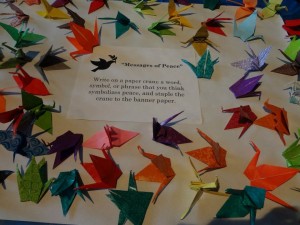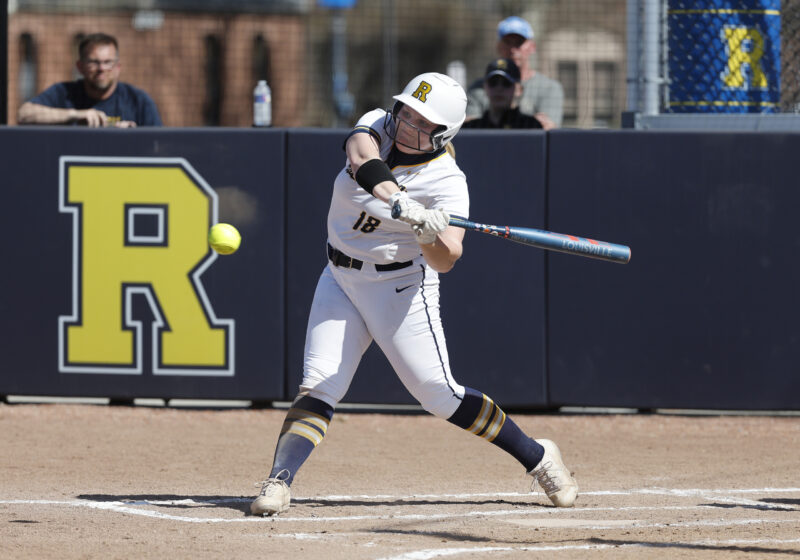UR has always prided itself on the racial, religious and economic diversity that is represented across campus in both the student body and University staff and faculty. As individuals from various cultures come together to make up a single university community, it becomes increasingly important for those with different backgrounds to participate in interracial and interreligious discussion, cooperation and collaboration.
The Students’ Association for Interfaith Cooperation (SAIC) – a student group that was S.A. approved this past February – promotes this mission by bringing together students from diverse religious backgrounds in order to facilitate greater understanding and tolerance. The group currently represents individuals from a wide range of faiths, including Muslim, Jewish, Christian, Atheist, Hindu and Buddhist members.
“The inspiration behind the group was that we were seeing a lot of religious diversity on campus but not too many opportunities for people to have interreligious dialogue about spirituality and faith,” junior president and founder of SAIC Fatima Bawany said. “We wanted to create an environment for that to happen.”
SAIC works to increase interfaith conversation with the hope that, by understanding more about religions other than one’s own, the easier and more natural it will be to cooperate with others within one’s own community and around the world.
“Dialogue doesn’t just mean sitting down and talking about religious things,” Director for Religious and Spiritual Life and primary advisor to SAIC C. Denise Yarbrough said. It encompasses everything from “religious conversation” to “sharing experiences across religious traditions,” she explained.
Although SAIC was only officially S.A. approved early this semester, it has been organizing activities since the beginning of the 2013-2014 school year. Their events are incredibly varied, including “Interfaith Trivia,” workshops with high school students, a Thanksgiving Banquet, and “Hijab for a Day,” which took place this past week. SAIC has also organized “Question Dinners,” in which dinner discussion is centered on a themed question, and has facilitated interfaith conversation ranging from dietary restrictions to relationships to alcoholism.
“Some students are interested in a ‘religious-spiritual feel’ and want to get involved in that sort of conversation, and some just want to get to know people of different religions in a friend way,” Yarbrough said. “People have different ways that they want to plug into this and we’re trying to make it broad enough to include everyone.”
SAIC has also been an active co-sponsor with other groups across campus in order to gain support both from peer clubs and the student body.
Bawany – one of the key founders of SAIC – built off of her previous experiences of promoting interfaith cooperation in the Rochester community after forming her own “Interfaith Club” at her high school.
“Interfaith work has been really big in the Rochester community, so we thought that it was appropriate with such a diverse campus to have an organization where we can appreciate that diversity and dialogue about it,” she said.
Before the creation of SAIC, Students for Interfaith Action attempted to fill the void of interreligious relations on campus, but the group disbanded following the graduation of its founders and a turnover in the administration of Interfaith Chapel.
Teaming together, Bawany and Yarbrough, along with other members of the student body, were able to resurrect the group with a new spin.
“We didn’t want it to just be ‘interfaith action,’” Yarbrough said, referencing the model encouraging interreligious community service projects designed by national organization Interfaith Youth Corps. “We really wanted something broader.”
Involvement in SAIC events has been very active, especially considering its young age as a club. Over 75 students attended the Thanksgiving Banquet, over 100 students attended the Interfaith Banquet that just took place, and over 65 students participated in the “Hijabi for a Day” program.
Conversation has not only resonated among student participants but with University administration as well. SAIC was featured as a presenting group at the UR Diversity conference that took place on March 28.
Additionally, following the discussion on dietary restrictions that SAIC co-sponsored with the Student Association of Vegan and Vegetarian Youth (SAVVY), dining services was alerted of issues of cross-contamination of meats and vegetables, showing the impact that student involvement can have on the University.
“I feel like I’ve learned a lot more about why people do things, but I’ve also become a lot more comfortable asking them,” junior and e-board member Sam Merrill said. “It’s become easier for me to connect with people that are different from me, and it is really amazing to be able to walk around and feel like you are connected to these people in the world that may be completely different from you.”
One of SAIC’s biggest goals for the future is not only to expand the club but to have a membership made up of those who represent a broad range of religions as well as individuals who may not necessarily identify with any particular faith.
“Just because you’re not religious, doesn’t have to mean that you can’t connect with people that are,” Merrill said.
“It’s a good thing to promote dialogue,” Yarbrough said. “As you know, in this world today, especially post-9/11, religious differences are often the cause of conflict. We’re here to…show that that doesn’t have to be the case, that in fact people can come together across all of these differences.”
Especially at a research university like UR where exploration of contrasting viewpoints and ideas are encouraged, SAIC hopes to engage students in ways that will help them post-university.
“People have always been curious about religion, but now, with SAIC and all of its events, people are realizing that it’s okay to be curious and to ask questions based on that curiosity,” Bawany said. “I’m seeing a lot more openness from people to actually address these topics of religion and ask the questions that they’ve always wondered.”
Douglas is a member of the class of 2017.






